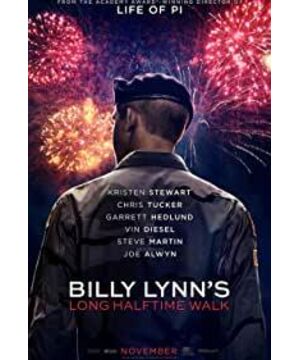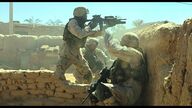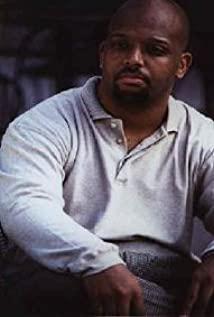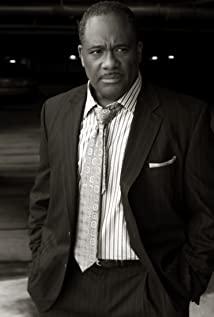The absurd contrast between the peaceful Texas football stadium and the deadly Iraqi battlefield in flashbacks is enough to set the tone and success of the film. The whole film does not stand entirely against the war, but tries to show the witnesses of the war, the soldiers of Class B, as well as bystanders of the war, the families of the soldiers, cheerleaders, capitalist bosses, and ordinary people's response to the Iraq War feeling.
For ordinary people, the Iraq war is a war that lacks reality, like a reality show. A country so far away, most people probably can't even pinpoint Iraq on a map. The crowd watched the war from the camera, cheered Billy's heroic actions, and worshipped him as a hero, just as the audience in the Colosseum cheered for a heroic gladiator. Then two weeks later, with new hot spots, Billy and his B class would be left behind. "Support the army" and "You are the heroes" are the catchphrases that are put on the lips, and the other party in my mind may be a hapless pauper. This is no longer the era when World War II sang "blood on the parachute", crossed the Atlantic to save the free world, and the epaulettes on military uniforms glistened. You are a hero on the stage, and a few workers off the stage will dare to fight with you.
For capitalists, the Iraq war was a business. Whether it's oil, or soldiers who go to war. It all comes back to profits, costs and balance sheets. The cheerleader may think war is romantic and beyond ordinary life, and the heroes of war have a different kind of excitement and charm, but as the squad leader said, in a few months, she should turn around and throw herself into the arms of some tall football linebacker .
Only for those who witnessed the war, the war was more than a simple word to cover. The war was indescribable to them, and he could not express his feelings in words to other bystanders. There have been earth-shaking changes in his life, a magnificent experience, and such intense conflict and pain in his heart. Maybe he can't speak, no one wants to listen, no one can understand, no one can really understand his sacrifice and pain. The only thing he can do is to cooperate with the performance, be a decoration and props in a celebration, and play a war hero in the eyes of the public. In the end, the protagonist could not answer the meaning of the war either. He drew any support from bystanders (except his sister), and it was a soldier's sense of responsibility and affection for his comrades to support him to return to the barracks to fight.
The biggest plot conflict in the film is not the protagonist and his sister, nor the capitalist boss in class B, but the different views and feelings of the witnesses and bystanders about the war, unable to communicate with each other, and unable to integrate. From the description and expression of this point, the film is very successful.
Jon Situ has done a show before, denouncing the Obama administration's delays in the placement of veterans and medical issues. He enumerated the tragic plight of veterans in the American wars starting from the Revolutionary War, and finally said with humor and sadness that the abuse of our heroes is a tradition of our country since ancient times. Not only in the United States, but all over the world. To be such a hero, the biggest price is not only the test of life and death, the purgatory of human nature, but to constantly question the meaning and value of one's sacrifice for the rest of his life, guarding the inappropriateness of this belly but no one talks about it.
Growing old in doubt, forgotten in loneliness.
View more about Billy Lynn's Long Halftime Walk reviews











